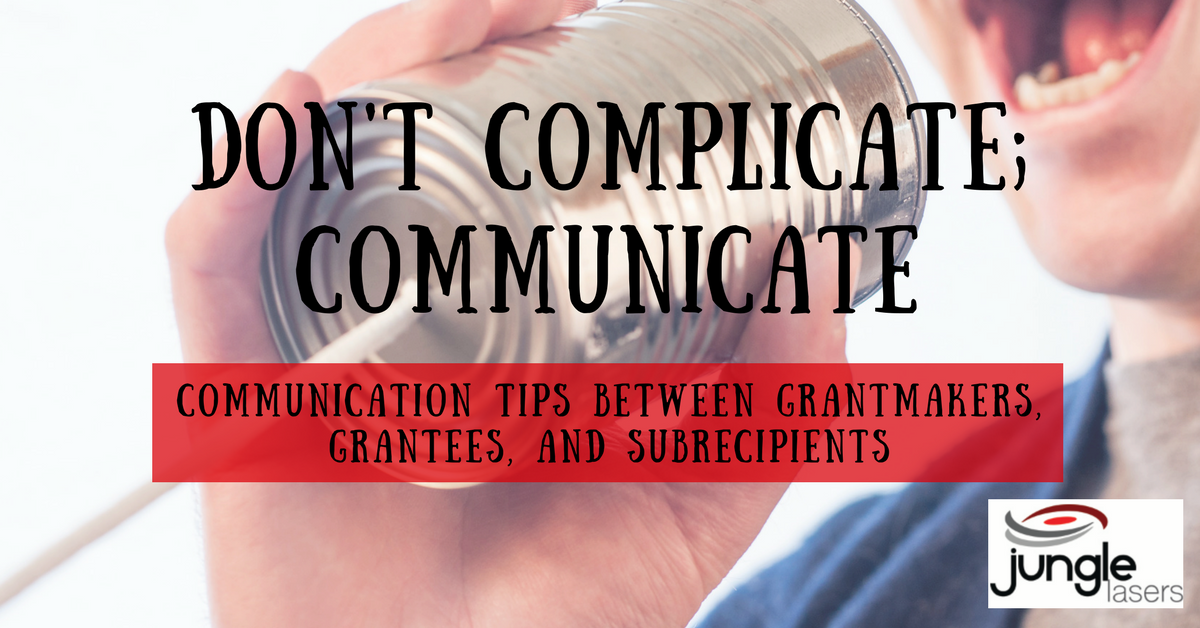Communication is defined as the process by which information is shared and exchanged. Today, communication comes in many forms including phone, email, social media, face-to-face, online, and the list keeps growing. When it comes to interaction between grantmakers (those who provide funding), grantees (fund recipients), and subrecipients (those who have grant relationships with grantees), there can be a gray area of when, how often, and where it is appropriate to connect and share information among each other professionally.
It is a grantmakers job to award money, but that doesn’t mean they have to award it to your organization.
The most common communication methods for grantmakers to grantees is through blog posts, webinars, email blasts, and other passive methods in order to distribute information equally to all grantees. Information sessions and consultations are often available and can be requested by grantees and sub-recipients prior to filling out applications and grant proposals.
Grantees must connect with their stakeholders regularly and often. It is best to establish connections not only on personal levels but also on the community level. Funders want to give to organizations that make the strongest impact on their communities. Showcase that impact by creating a strong social media presence that targets a specific audience. Be sure that your presence, online and in person, remains consistent with the mission of your organization.
Approaches to positive communication methods can vary between organizations. When reaching out to grantmakers, be sure that you are following your organization’s best practices of communication which may include:
Document all exchanges
For every instance that you reach out to a grantor, be sure you record the date, message, and response.
Create a plan
Identify when, how, how often, and the methods in which to communicate with both grantmakers and grant recipients.
Remain persistent
Be sure that you are always interacting with the mission of your organization in mind.
Express gratitude
If you receive an award from a funder, be sure to send a formal “Thank You” and send your grant report in a timely manner. You may even want to consider sending your grantors invitations to upcoming events in order to build a strong relationship and further show your appreciation.
Think of rejection as an opportunity
Continue to build a bridge instead of burning one. Call or email the foundation in order to get more information on what types of people and organizations they usually award funds to. Use this opportunity to find out if you are eligible to resubmit your proposal for the next funding cycle, if you should change your approach, or include something different in the future.
Just because they rejected you this time doesn’t mean they’re sure to reject you in the future. Write a letter to the foundation and thank them for reviewing your proposal and the opportunity to work with them in the future.
No matter the role you play in the grants system, never waste an opportunity to make a first impression establish a professional relationship. Positive communication practices will always result in better grant seeking in the future.
Please click the links to learn more about Jungle Lasers and our {g}grants software for grantmakers.
Subscribe to our blog by providing your name and email below!


Leave A Comment